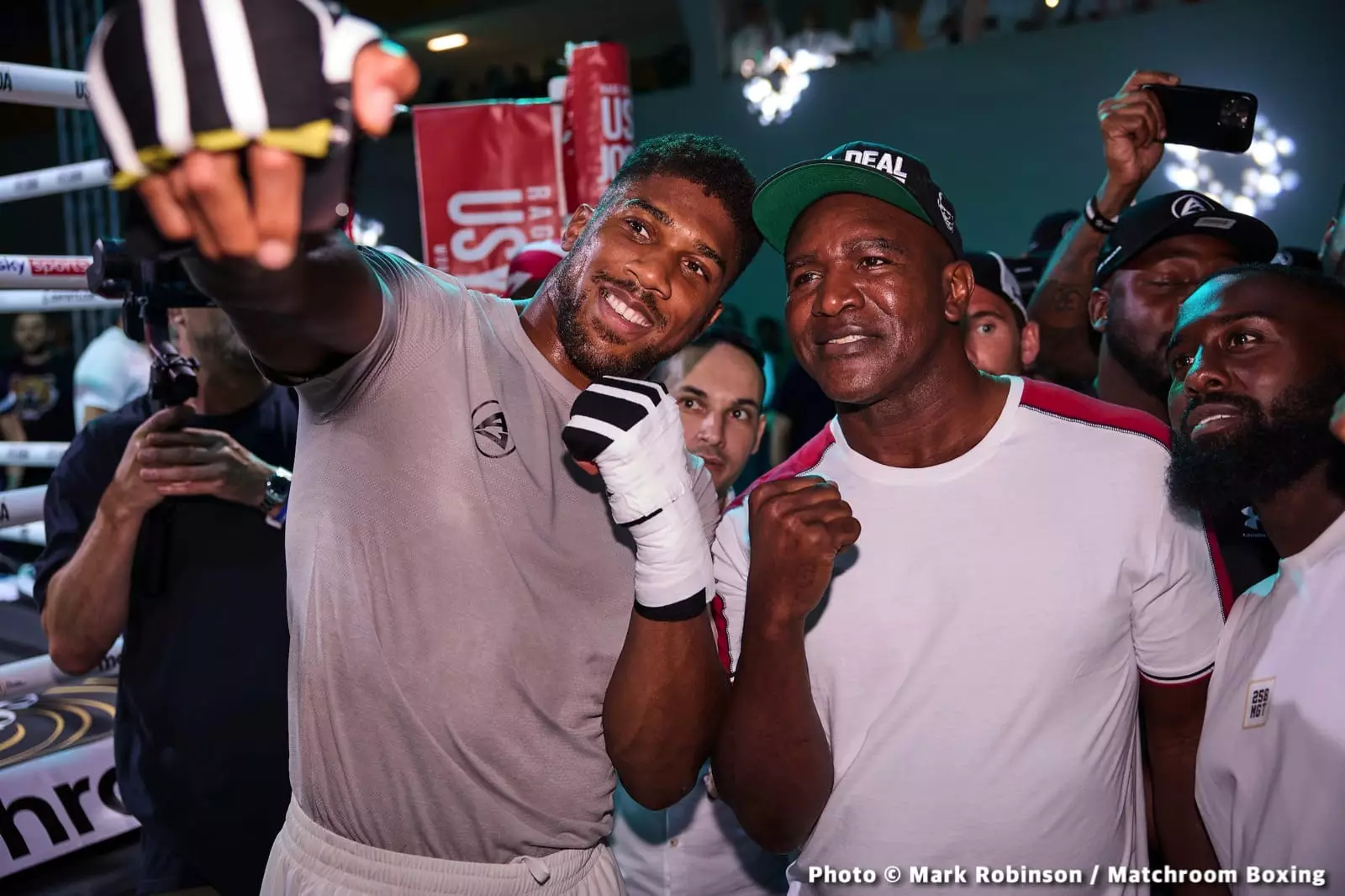Evander Holyfield, a name synonymous with boxing greatness, continues to evoke passion and contention long after his farewell to the ring. Recently, during an exclusive interview with Radio Rahim at the Ring Magazine Awards in London, Holyfield made a compelling, albeit controversial, assertion: that he deserves the title of greatest heavyweight champion—a title he believes has unjustly been bestowed upon Muhammad Ali. Exploring this claim not only unveils the complexity of boxing’s esteemed history but also poses questions about what truly constitutes greatness within the sport.
Holyfield’s assertion is predicated on a unique accomplishment—his distinction as the only four-time heavyweight champion. This record is significant, spanning four different reigns and demonstrating his resilience and adaptability across eras. Yet, his frustration stems from the relative neglect he perceives in media dialogues around his legacy compared to Ali, who is often celebrated for his trio of titles. „I’ve been the only four-time heavyweight champion of the world for 24 years,“ Holyfield expressed, indicating a deep-seated yearning for recognition that he feels his accomplishments merit. This brings to light a broader discussion about how history remembers athletes and who gets to define their legacies.
While Holyfield’s dominance in the ring against formidable opponents like Buster Douglas and George Foreman cannot be downplayed, it’s vital to assess the criteria that dictate an athlete’s standing in boxing lore. The reality is that the impact and legacy of a fighter extend beyond just the number of titles amassed. While Holyfield holds a remarkable record, Ali’s legacy encompasses not only his victories but also his cultural impact, charisma, and the historical context of his fights.
The question of who faced tougher competition raises fluttering comparisons between Holyfield and Ali. Muhammad Ali fought during an era where the heavyweight landscape was dominated by singular champions; the lack of division among belts meant that he posed a consistent challenge to the best fighters of his time, including Joe Frazier, George Foreman, and Ken Norton. Holyfield, in contrast, operated within a fractured heavyweight scene where multiple titles often diluted the significance of individual victories.
While Holyfield’s victories over the likes of Riddick Bowe and Lennox Lewis are laudable, they occurred within a competitive climate that allowed for more champions and, consequently, more titles in circulation. This distinction is vital in assessing their respective places in history. Quantity of titles alone cannot define a fighter’s greatness; the quality and significance of their opponents play an equally critical role.
The sports community often engages in endless debates over the meanings of „greatest,“ „great“ versus „gratefully remembered,“ and to whom these labels should apply. It’s important to recognize that while Holyfield’s accolades as a four-time champion create a strong argument for his place in the annals of boxing history, greatness is not just a numerical contest; it is intertwined with the era, the narrative of the sport, and the enduring legacies each fighter leaves.
For instance, while Evander Holyfield earned titles through a multifaceted and challenging career, one must question the significance of some of those bout outcomes. Should victories over fighters like John Ruiz or Michael Moorer be held in the same respect as victories over household names like Joe Frazier or Sonny Liston? Are wins against lesser-known opponents just as weighty as classic bouts that defined ere boxing?
Evander Holyfield’s declaration at the London awards embodies the fiery spirit of a champion. His contributions to heavyweight boxing are undeniable, and his legacy deserves respect. However, the quest to assert himself as the greatest heavyweight may overshadow the collective narrative crafted by so many other champions, notably Muhammad Ali. Ultimately, greatness is a multi-faceted construct, and while Holyfield’s accomplishments merit reverence, boxing’s rich tapestry is colored by the accomplishments of all its champions—a realization every fighter must confront in their quest for recognition.


Napsat komentář